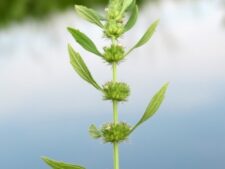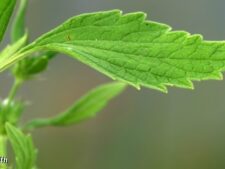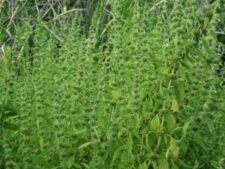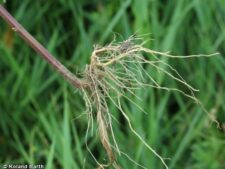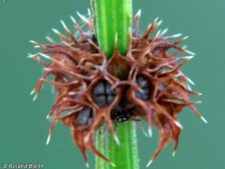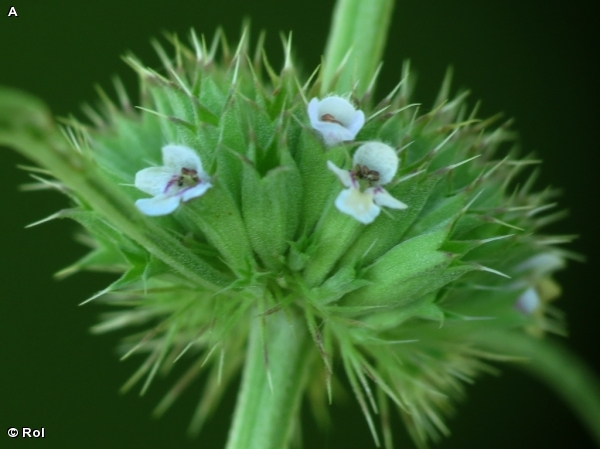
HOREHOUND MOTHERWORT
Chaiturus marrubiastrium
MINT FAMILY (Lamiaceae)
 Identification
Identification
- Flowering time - June, July, August, September
- Locally common on the floodplain at Fontenelle Forest where the stream enters the Great Marsh
- Square stems
- Whorls of tubular, two lipped flowers surrounding the stem
- Leaves are not lobed separating it from similar Motherwort (Leonurus cardiaca)
This biennial plant, introduced from Eurasia, grows up to 6 feet tall and has tiny white to pink flowers with some purple and yellow inside the corolla (A). The flowers are arranged in tight clusters where opposite leaves join the main stem (leaf axils) (B). The leaves are lance-shaped with course teeth (C). The flower clusters turn red-brown and are then armed with numerous prickles protecting black seeds (F). These plants grow in abundance, especially near water (D). They were first noticed in 2012, the year after the flood.
Not noticed before 2012, this plant is now common, especially along Stream Trail near its junction with the Great Marsh. Flowering occurs from June to September.
The lobed leaves of closely related Motherwort (Leonurus cardiaca) differentiate it from Horehound Motherwort.
Horehound Motherwort’s resemblance to Motherwort is responsible for its alternate common name, False Motherwort.
The content of NatureSearch is provided by dedicated volunteer Naturalists of Fontenelle Forest who strive to provide the most accurate information available. Contributors of the images retain their copyrights. The point of contact for this page is: Roland Barth.

